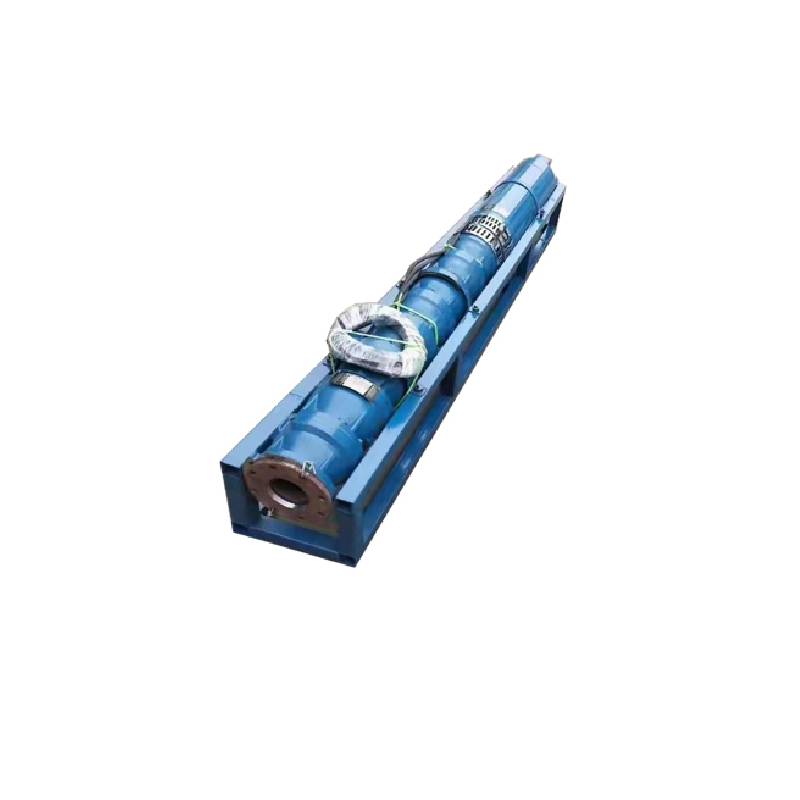8 月 . 06, 2024 09:46 Back to list
Innovative Solutions for Efficient Deep Submersible Well Pump Technology in Modern Water Systems
Deep Submersible Well Pumps An Overview
Deep submersible well pumps are essential in various applications, primarily focused on water extraction from deep underground aquifers. These robust mechanical devices are designed to operate submerged in water, providing an efficient means of pumping water to the surface. Their use is prevalent in agricultural irrigation, municipal water systems, and industrial applications, where reliable and efficient water supply is crucial.
Structure and Functionality
A deep submersible well pump generally consists of a motor, impellers, a pump bowl, and a discharge assembly. The motor is typically located at the bottom of the pump, submerged in the water, which allows it to remain cool while operating. This arrangement is distinct from surface pumps, which require additional components to push water upward.
The pump is designed with multiple impellers stacked in a series, each contributing to increasing water pressure as it moves towards the surface. The multi-stage design allows these pumps to lift water from significant depths—often exceeding 400 feet—effectively making them suitable for deep wells.
Operating Principles
Deep submersible pumps function on the principle of centrifugal force. When the motor activates, it spins the impellers rapidly, creating a low-pressure zone that draws water into the pump. The design of the impellers directs the water upwards through the pump casing, increasing its pressure as it ascends. This mechanism efficiently transports water over considerable distances, making it a preferred choice in situations where surface-level pumps would struggle.
Installation and Maintenance
deep submersible well pump

Installing a deep submersible well pump requires careful consideration of several factors, including well depth, diameter, and water quality. The pump must be adequately sized to match the specific requirements of the application. Improper sizing can lead to inefficiencies and reduced lifespan.
Routine maintenance is critical to ensure the longevity and efficiency of deep submersible pumps. Regular check-ups on the motor, electrical components, and mechanical seals can prevent costly breakdowns. Additionally, monitoring the water quality is essential, as contaminants can lead to corrosion and damage over time.
Advantages
One of the primary advantages of deep submersible well pumps is their efficiency in pumping water from significant depths. They are also highly reliable, minimizing the need for frequent maintenance compared to other pumping systems. The design reduces the risk of cavitation—a phenomenon that can damage a pump—due to the submerged operation. Additionally, these pumps can handle varying water levels, making them adaptable to changing environmental conditions.
Applications
The applications of deep submersible well pumps are diverse. In agriculture, they are instrumental for irrigation systems, where consistent water supply is vital for crop production. Municipal water systems rely on these pumps to provide clean water to communities, particularly in areas where surface water is scarce. Industrial applications include water supply for cooling systems, fire protection, and irrigation for large facilities.
Conclusion
In summary, deep submersible well pumps are critical components in modern water management systems. Their ability to efficiently extract water from significant depths, combined with their reliability and adaptability, makes them an invaluable asset in various sectors. As technology advances, these pumps are expected to become even more efficient and environmentally friendly, further enhancing their role in sustainable water resource management. Whether for agricultural, municipal, or industrial use, deep submersible well pumps continue to play a vital part in meeting the world’s growing water demands.
-
Your Guide to Deep Well Pumps
NewsOct.31,2024
-
Why Choose a Stainless Steel Deep Well Pump?
NewsOct.31,2024
-
Understanding Water-Filled Submersible Pumps
NewsOct.31,2024
-
Understanding SS Submersible Pumps
NewsOct.31,2024
-
Reliable Submersible Well Pumps for Your Water Supply Needs
NewsOct.31,2024
-
Choosing the Right Submersible Pump for Your Water Management Needs
NewsOct.31,2024
-
 Understanding Water-Filled Submersible PumpsWhen it comes to selecting the right pump for your water management needs, understanding the different types available is crucial.Detail
Understanding Water-Filled Submersible PumpsWhen it comes to selecting the right pump for your water management needs, understanding the different types available is crucial.Detail -
 Guide to Installing a Deep Well Submersible PumpWhen dealing with deep wells, a deep well submersible pump is often the most effective solution for extracting water from significant depths.Detail
Guide to Installing a Deep Well Submersible PumpWhen dealing with deep wells, a deep well submersible pump is often the most effective solution for extracting water from significant depths.Detail -
 Finding the Right Submersible PumpWhen seeking an efficient solution for pumping water from deep wells, sumps, or other applications, the submersible pump is a leading choice.Detail
Finding the Right Submersible PumpWhen seeking an efficient solution for pumping water from deep wells, sumps, or other applications, the submersible pump is a leading choice.Detail
